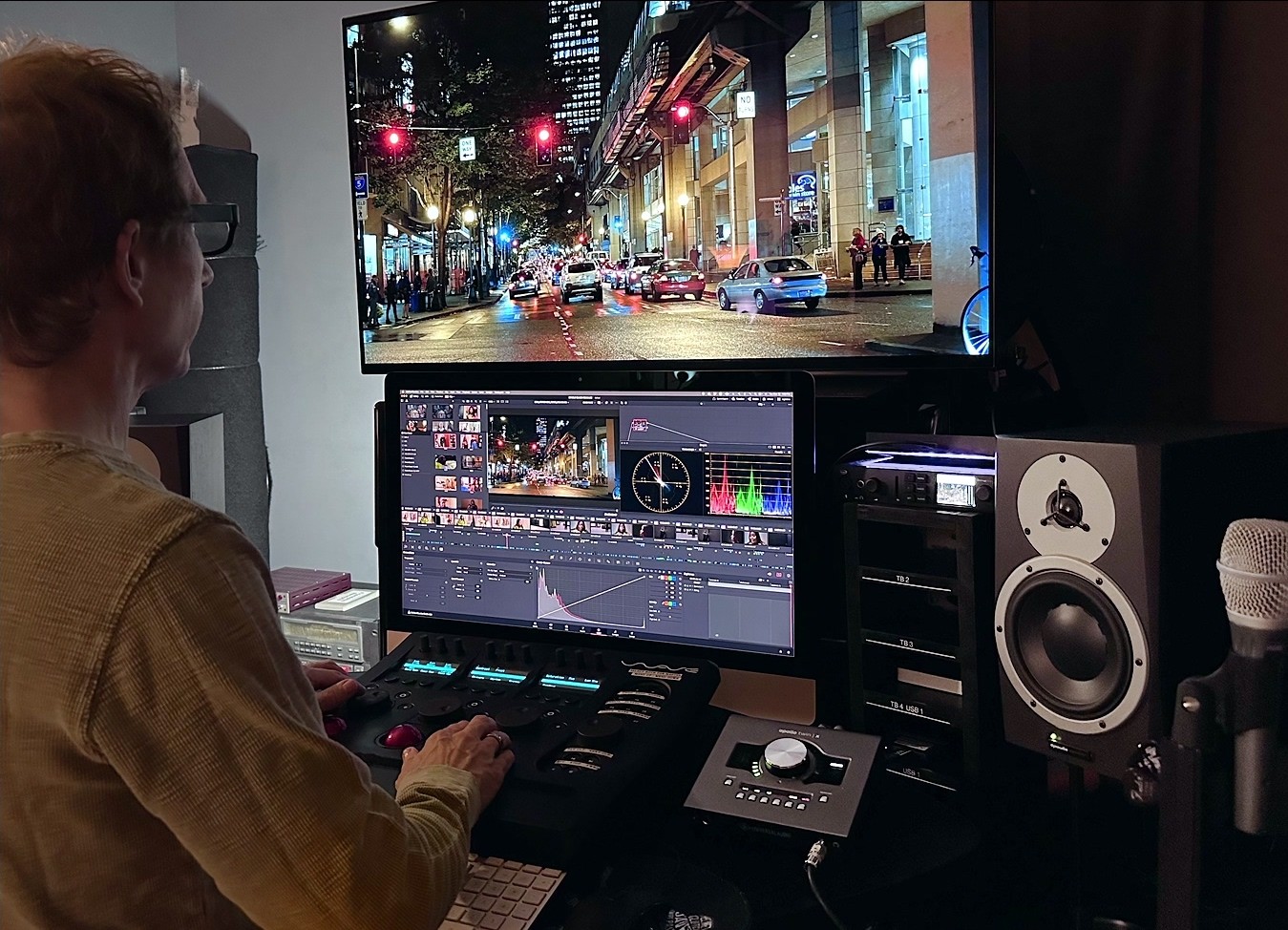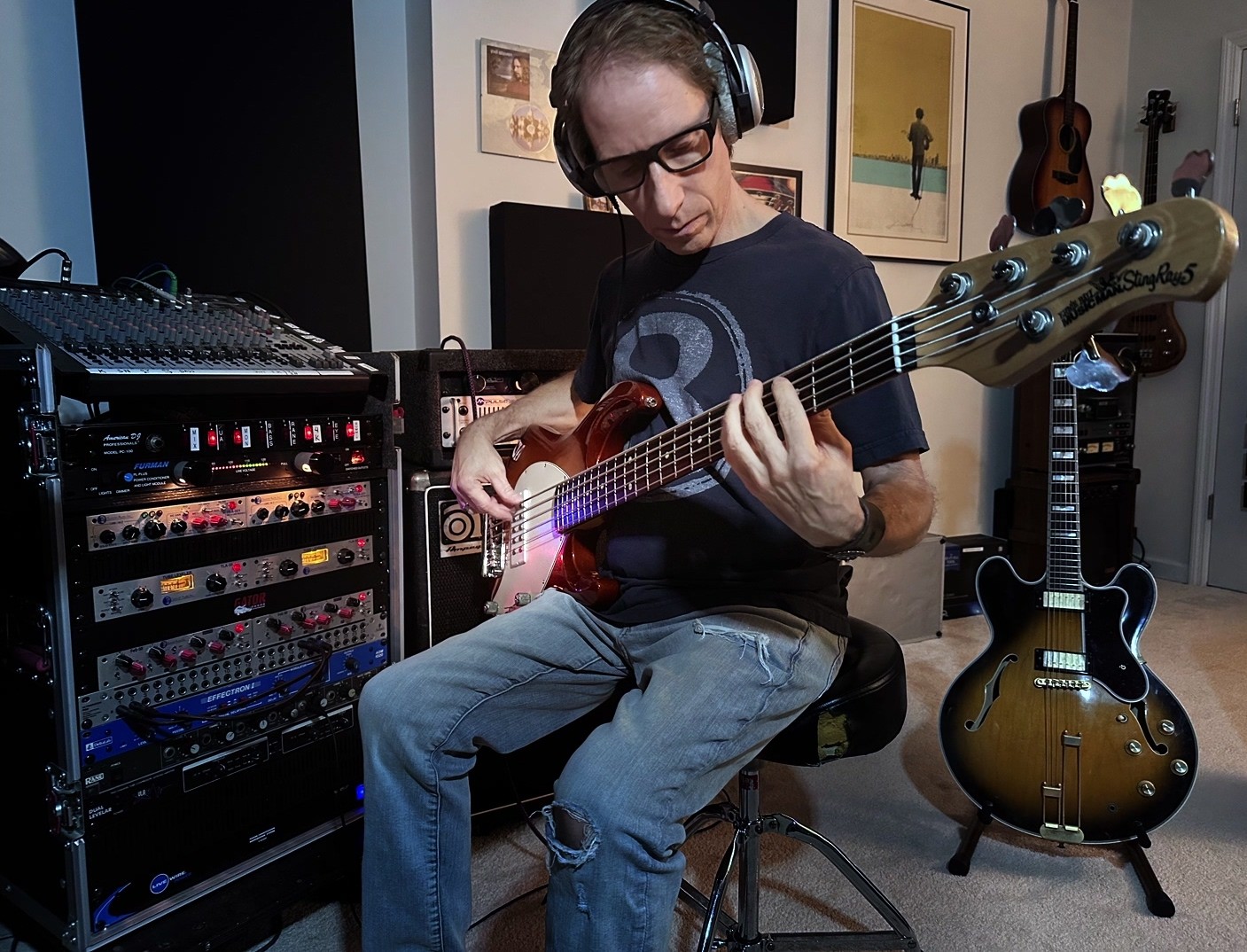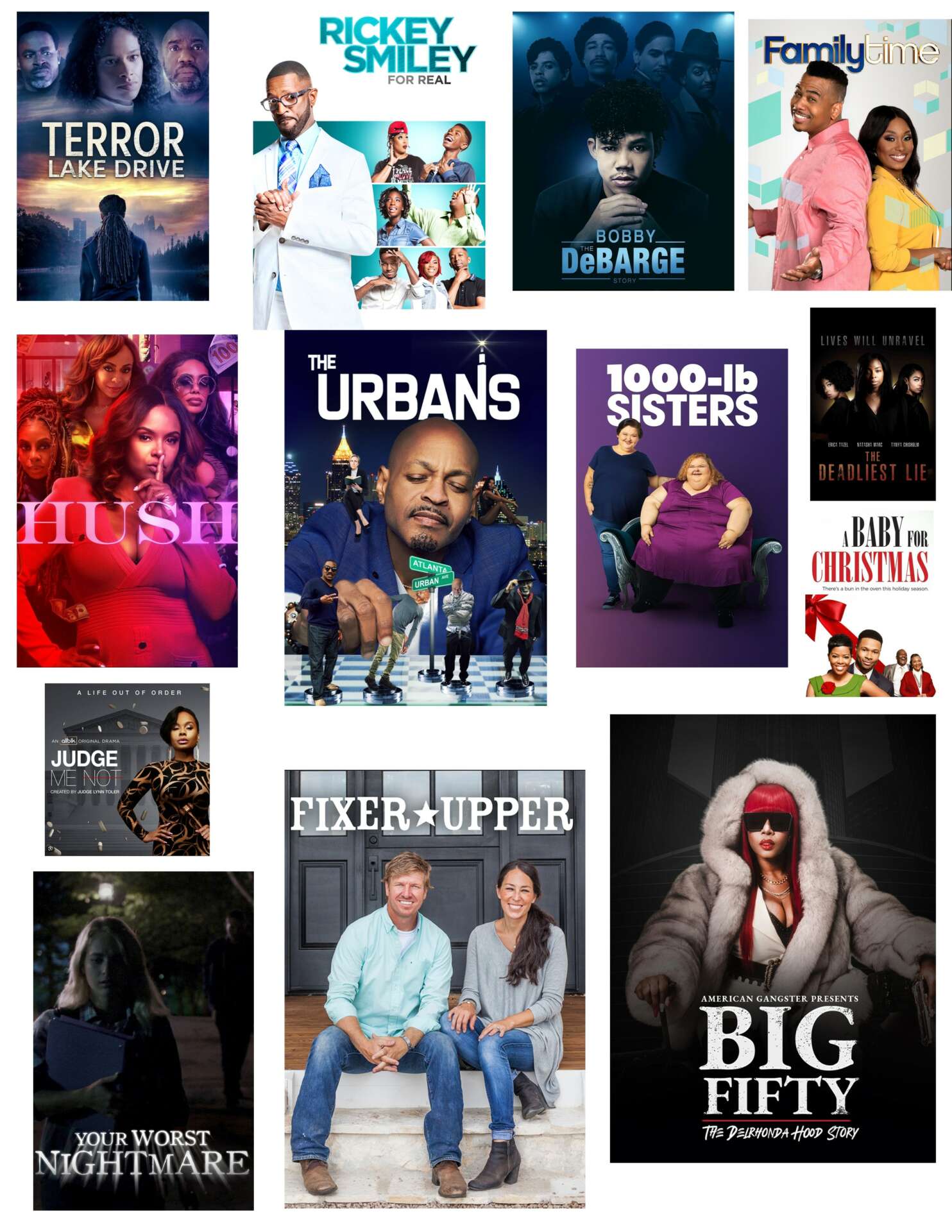We’re excited to introduce you to the always interesting and insightful Joel Steven. We hope you’ll enjoy our conversation with Joel below.
Joel, thanks for joining us, excited to have you contributing your stories and insights. What do you think Corporate America gets wrong in your industry? Any stories or anecdotes that illustrate why this matters?
When it comes to the film and television industry, I think the corporate side of the business suffers from the same things that the rest of corporate America suffers from. There is often a sizable void between the workers and upper management. There is this “top down” mentality that I believe simply does not work. Executives can often be so out of touch not only with the day to day workflow of their staff, but also with their environmental and financial needs as human beings. Let’s take the recent Hollywood writer’s strike for example. For years now streaming services have been broadcasting shows created by the writers, and doing that on multiple and ever growing online platforms. The studios are making deals and bringing in new revenue but not fairly compensating the writers. Over time (and it’s true in other industries as well) resentment built up and boiled over because rather than giving writers a voice and including them in the discussion, they went with the day to day status quo and choose to deal with it later. In the case of the writers strike, the gap became so massive that it took nearly 6 months for them to come to a resolution. Meanwhile everyone in the industry suffered the cost. So in my view the exchange of ideas in a system should be open, inclusive and circular. Creativity is born out of input from all people in a company. And from my experience the lower level workers are actually the key to efficiency. They have creative and intelligent ideas on how to make operations run smoother and faster making the company more productive. It is said far too often but never enough; the most valuable asset of any company is its employees. Why would you not want to keep them happy and have their voices heard?


As always, we appreciate you sharing your insights and we’ve got a few more questions for you, but before we get to all of that can you take a minute to introduce yourself and give our readers some of your back background and context?
Everything that led me to where I am today I credit to my love for music. I look back on my life and I see a common thread that guided me down a path to where I am today, and that is music. After I began playing guitar at age 15, all I wanted to with my life was to make my living as a musician and songwriter. But I discovered that the “starving musician” stereotype was at times too close for comfort. It was (and is) a tough business to say the least. But while out playing live shows with my band I discovered that the technical side of music production (the audio engineering) paid considerably more than we musicians were being paid. It seemed like a perfect skill for me to learn, because It allowed me to stay in the industry surrounded by the music and the creative people I loved and still earn a living. It turned out I was pretty good at it! And I think the following is the reason why.
As a kid I always loved tinkering with things. I would take apart bicycles, engines and appliances and put them back together just to see how they worked. Audio engineering employs much of the same logic. Yes, there is understanding all of the wiring and hardware such as mixing consoles and amplifiers etc, but you also need to be able to construct and deconstruct elements of an audio mix such as a band or the sound on the score of a film. I think my childhood experience tearing everything apart and rebuilding it helped me in so many ways.
So I followed the path of music and audio engineering wherever it led me. I left Michigan and went west to California. I became chief audio engineer for a sound company and mixed bands for several years. Shortly after that I opened a recording studio in Santa Cruz. After a stint recoding bands and opening a small record label, I moved to LA to further my knowledge of mixing by hopefully working on feature films. I managed to land an entry level job at a respected post production studio, but two weeks after hiring me they shut down the audio division. I had no idea what to do. The company did however need people in the film side of the studio. I had no real experience in film, but I applied and somehow squeezed in. Suddenly I was kind of thrust into the fire working on big feature films and television shows. I became what is known as a Telecine Assistant. It is similar to an assistant editor, but you work very closely with the Colorist who takes the film and video files and color corrects the images; makes all of the cameras match and then puts a specific ‘look’ on the footage. Little did I know it at the time, but that training would prove very valuable in the next stage of my life.
Ten Years went by working in the crazy film world of LA. But then the company was sold. A lot of my friends were laid off and then the 2008 financial crisis hit. It was pretty depressing, and I went from a high paying film job to working for less that half of my salary at Musicians Institute in Hollywood. Then they laid me off. So I decided to stop chasing corporate jobs and move to Atlanta to open my own business with a friend. That business didn’t make it, in fact it crashed and burned pretty hard. But in a strange twist of events I met an Emmy Award winning colorist named Ron Anderson who was looking for someone to help him with overflow from his growing colorist business. We were both Michigan natives born in Detroit so we hit it off right away. Ron trained me the specific skills and artistic touch of color grading (the technical part of the job I knew from my work in LA) and over time as he moved more and more towards retirement, I had gained a good enough foundation of skills and clients to open my own small business called Island Digital. Now I am self employed and doing all of the things I love. And while most of my income comes from my work as a colorist, I still offer my services as a video editor, audio engineer and music producer. And of course I still play and write music. I even landed a gig playing bass guitar in an all original rock band called Head Canon.
So what have I leaned through all of this? Follow your heart and your inner voice. They will lead you to where you need to be if you listen to them. Don’t be afraid to veer off your original path and take some chances. Don’t be afraid to fail. I have hit bottom many times, and I have always grown wiser and more successful from it.

Any fun sales or marketing stories?
For that I need to backpedal just a moment and talk about another thread that I wove into my business journey; diversification. As I mentioned, music was my passion but performing wasn’t paying the bills. So I added audio engineering into the mix. That increased my bottom line, but it still wasn’t enough. So over time I studied and learned photography and started doing photoshoots and videography work. Now I had three skills. It made logical sense to learn video editing as well, so I worked a fourth paying skill set into the blend. I was alway interested in growing and learning, that’s just me, but having a diversified skill set helped greatly. When times got lean in one area such as music, I could fall back on three of four other areas to make income. So with that in mind, I’d like to share a fun and interesting story along those lines. It was 2001 and as I mentioned I owned a small recording studio in Santa Cruz California. One of my clients (his name was Ted) was a musician who had some success placing his original music on TV shows. He asked if I owned a publishing company for my original music. I told him I didn’t, and that I had no idea at all about publishing, placing music, or any of it. He suggested I open a publishing company of my own through BMI. Now most of you have heard of BMI and ASCAP but may not really know what they do. These are known as performing rights organizations. They are responsible for tracking and paying royalties to composers for their work when it appears on radio or television. So my client Ted said that I should do this immediately, because I could earn royalties not only from my own music, but that I could represent other artists and get a percentage of their royalties as well. I was a bit skeptical as I had no connections whatsoever in TV and radio at the time. Ted said “I’m telling you, just start up the company and good things will happen”. He said he would give me a cut of his royalties from the music we were producing in my studio, and suggested I offer the same to all of the other bands I was recording. So I invested some time and opened a publishing company called Cyber City Publishing BMI and signed a few artists as he suggested. I also put the music up on my sad little website that I had built myself using old school HTML coding.
About two weeks later I came into the studio and there was a message on my answering machine (yes, the old mini tape recorder type). “Hi this is Louis Clark from MTV. I’m interested in licensing some of your original music, so give me a call . . . “ and he left a number. Now there is a lot of camaraderie and joking around in the music world, so I immediately thought it was Ted or another friend of mine pulling a practical joke on me. So I called the number back half laughing to see who it was. I was kind of shocked when Louis answered the phone and (after I cautiously vetting him) confirmed he was for real. He wanted new music for MTV’s Real World and Road Rules and had found my web site. I sent him all of my music, did the paperwork right away and faxed it over to him. He sent me back a contract that same day. Louis actually did start dropping my music into the shows, and within a few months I was making pretty substantial royalties and getting checks in the mail. Over 20 years later I still receive royalties from those music placements.
Now, there is an interesting twist to this story. About two years after signing the contract, I got a notice that Viacom (who owned MTV) was being sued for using several artist’s music and not turning in the cue sheets, essentially not paying royalties. MTV did use my music, they used 29 of my songs but only payed for 12 of them. In the end they settled out of court and had to pay out over 12 million dollars to all of us. I got a sizable settlement, but needless to say that was the end of my stint with MTV.
The point of this story is it’s always smart to diversify. Try new things, learn new skills. You may find a change in direction will be just the spark you and your business needs.
For you, what’s the most rewarding aspect of being a creative?
For me the rewards of being creative are second in beauty and power only to the love we experience between people who we are close to in our lives. Being creative is certainly a type of love, and it runs deep within most artists. It’s extremely profound. I think for most creative people in the arts, especially performers, we initially love the adoration we receive when we express ourselves to others. I won’t lie, it drove me pretty hard when I was young. But at the same time I realize now that I have always found great joy just in the process of creating in and of itself. I have to backpedal a bit again, but when I was quite young and before I started actively pursuing music, I was always drawing and writing stories. Hardly a day went by where I didn’t write a poem, draw or paint something. When you create a piece of art, there is no answer to it. It’s not like math, where it is either right or wrong. You can spend your whole life on your art and never get to a point where you say “Well I am finished now! I found the answer! I have mastered everything about my craft and have now come to the end”. I love that endless, circular experience. I was so enamored with how that made me feel that I decided to major in creative writing in collage and get my minor in fine arts. Through all of it I discovered that what I really wanted was to impress myself first and foremost. I found out that while I did love the praise I received from others, that in the end it was me who would be my toughest critic. I knew when something I created was not my best. But that just made me inspired to do better. To try harder next time. It’s circular in nature and I just love that continuum. The more you create, the more you want to create and get better at your craft. And if we are honest with ourselves as artists we need to answer to our own creations. So create something YOU love first and foremost. Then your passion for it will bring others to love it with you.
Contact Info:
- Website: islanddigitalpost.com
- Facebook: https://www.facebook.com/octagonstudiosofatlanta
- Linkedin: https://www.linkedin.com/in/joel-steven-2217666/
- Other: https://www.imdb.com/name/nm3150969/


